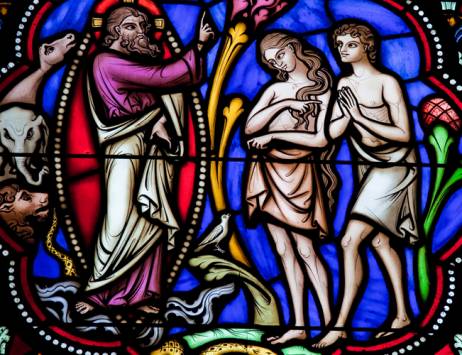First Samuel is appropriately named after Samuel, the principal character of the early narratives and the one who anointed Israel’s first two kings, Saul and David.
First and Second Samuel were originally one book, “The Book of Samuel” in the Hebrew Scriptures. When these Scriptures were translated into Greek, around 150 B.C., Samuel and Kings were brought together into a complete history of the Hebrew monarchy. This unit of Scripture was divided into four sections: First, Second, Third, and Fourth Kingdoms. Samuel and Kings were later separated again, but the divisions of the Greek translation persisted. The result was a 1 and 2 Samuel and a 1 and 2 Kings.
Who Wrote 1 Samuel?
The Jewish tradition suggests that Samuel was the author of the first part of the book (chs. 1–24), and that the prophet Nathan and the seer Gad were the authors of the remainder, including 2 Samuel. Another editor at a later date could have taken the memoirs of Samuel, Nathan, Gad, and others and woven them under the guidance of the Holy Spirit into the wonderfully unified book we have today.
A number of critical scholars have dated the book around the middle of the sixth century, much later than the lives of Samuel and Nathan (c. 1100–1010 B.C.). It is obvious that at least some parts of the book were written after the death of Samuel (25:1; 28:3), and perhaps even after the division of the monarchy (27:6). However, there is no reference to the fall of Samaria to the As- syrians (722 B.c.), and it is reasonable to assume that the book was complete by the last quarter of the eighth century B.c. The eighth-century author used documents dating back to David’s reign or shortly after (1025–900 B.c.). The author included eyewitness accounts, and the antiquity of some linguistic features indicate that parts of the book were written at an early period.
What is the Purpose of 1 Samuel?
The pur- pose of 1 Samuel is to provide an official account of the rise of the monarchy during the time of Samuel and the development of it under Saul and David. The book particularly focuses on the rise of David during this period.
In fact, the second half of the book and first half of 2 Samuel amount to an apology for David’s rise to the throne. The similarities of this section to the Apology of Hattusilis, a thirteenth-century B.c. writing, are remarkable. In this ancient document, a Hittite king outlined the reasons for the legitimacy of his rule. Such an apology was particularly important in the case of a king—like David—who founded a new dynasty.
Jesus in 1 Samuel
First Samuel focuses on the life of David and reveals details that definitely point to the One who would be called by his name. Like Jesus, David is born in the sleepy little village of Bethlehem. His reputation as a shepherd is validated by his years with his father’s flocks. This lowly shepherd becomes the king of the Jews. He is the anointed king who becomes the forerunner of the messianic King. Through years of struggle and danger, David tastes the kind of rejection Jesus would fully digest. Many of his psalms reveal his firsthand experience of being forsaken (Ps. 22; Matt. 27:46).
David is the most famous of Jesus’ earthly ancestors in the long and distinguished messianic line. In addition to being referred to as the “Son of David” (Luke 18:38), Jesus is called “the seed of David according to the flesh” (Rom. 1:3) and “the Root and the Offspring of David” (Rev. 22:16).






